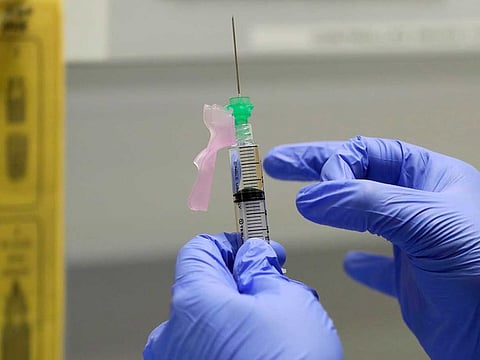Vaccine roll-out in UK, Russia is great news
But road to mass inoculation littered with challenges

Wednesday’s announcements by two countries — Britain and Russia — to begin vaccinations are expected to be a turning point in mankind’s war against the pandemic and a big step to eventually defeat the disease. On that day, Britain beat Russia by a few hours to become the first country to grant formal clinical authorisation for the vaccine, a joint product of Pfizer and BioNTech.
The British officials allowed emergency usage of BNT162b2, technically still an experimental vaccine developed in a record time. Russia, on the other hand signalled a bolder roll-out, announcing mass vaccinations from next week.
Russia’s Sputnik V, already given to over 100,000 people, has a success rate of 92 per cent while BNT162b2 is found to be 95 per cent effective. European Union and United States, where the virus is on a surge, are likely to follow suit and approve emergency usage of the Pfizer shot along with the vaccine made by Moderna.
The vaccine roll-out, even if it is done in phases, is expected to hugely boost defences against the pandemic and reduce infection rate, hospitalisation and mortality. The UK has placed an order of 40 million vaccines, enough for 20 million people who will receive two doses each.
This vaccine will likely take many more months after questions were raised over the integrity of its late stage trial data. That means, a large sections of global population may not benefit from early roll-outs and these countries will have to continue to focus on preventive strategiesGulf News
Still, the road to mass inoculation is littered with manufacturing bottlenecks and logistical challenges, the process is likely to be painfully slow and lengthy. In the first batch, the UK will get only 800,000 shots by next week and the vaccine is likely to be rationed for the first few months. Elsewhere, nations are scrambling to put infrastructure in place to receive and distribute the vaccine.
Italy and United States, where Pfizer is expected to deliver the shots in the coming weeks, are in a burning urgency to arrange ultra-cold containers as the vaccines must be transported at -95 degree Fahrenheit. If maintaining Antarctic temperatures in distribution cold chains sounds challenging, the bigger task is to thaw the vaccines before administering them in a small window of just five days.
While countries that are able to quickly martial resources and place orders for Pfizer and Moderna vaccines will have an advantage, many other countries will have to wait much longer. For example, Pfizer is unlikely to be made available in India soon as the country relied on five other manufacturers, including AstraZeneca and Oxford University.
This vaccine will likely take many more months after questions were raised over the integrity of its late stage trial data. That means, a large sections of global population may not benefit from early roll-outs and these countries will have to continue to focus on preventive strategies.
Sign up for the Daily Briefing
Get the latest news and updates straight to your inbox







